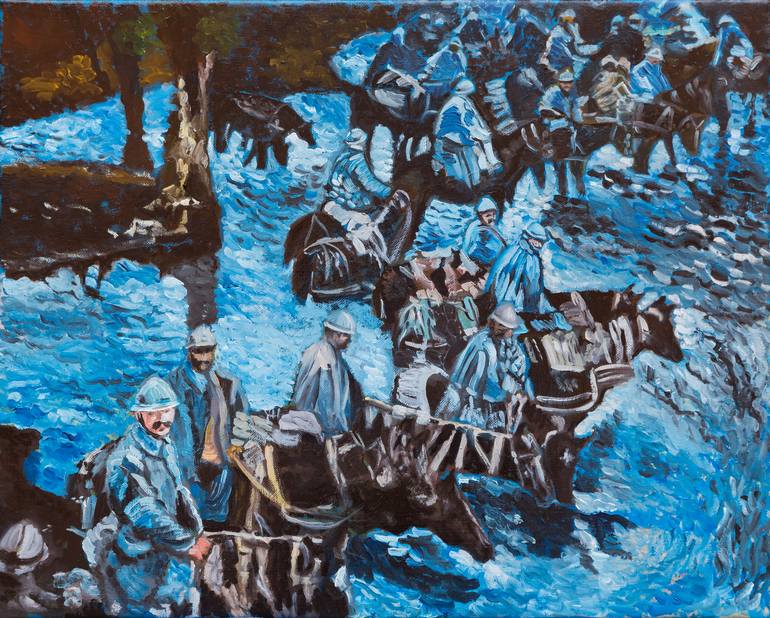Today marks the the 104th anniversary of one of the events that changed the world forever. On February 21st in 1916 - the Battle of Verdun began. The battle was to change the course of Western Civilization.
The idea for the battle was from German Chief of Staff, Erich von Falkenhayn. He believed that if he could take-out France with a major set battle and discourage England to a point that Germany could be in a position to negotiate very favorable terms. To accomplish his goals - Falkenhayn proposed unrestricted submarine warfare to starve Britain and a knockout blow against France at Verdun. With this major battle at Verdun, Falkenhayn hoped to "bleed France white".
It was an ambitious plan - an aggressive plan. Falkenhayn knew that to attack at Verdun he'd have to take resources away from the Eastern Front and that unrestricted submarine warfare ran the risk of bringing the U.S. into the war. Falkenhayn reasoned that Russia was on the brink of revolution and internal civil war in Russia would allow them to take those resources from the Eastern Front and that the decisive blow to France would come before the US was dragged into the war. He was right on the former but wrong on the latter.
Verdun seemed the perfect place to attack. It actually jutted out into the German lines - so it could be attacked from three sides. It was also of historical and psychological significance to Frenchmen (somewhat akin to what the Alamo is to Americans).
The job of attacking Verdun fell to German Crown Prince Wilhelm. He planned to assault the town from both sides of the surrounding Meuse River but that plan vetoed by Falkenhayn. After coming up with a daring, aggressive plan - Falkenhayn was suddenly cautious. Falkenhayn ordered the attack to be confined to one side of the river. Similar to a poker game, Falkenhayn was beaten on the river. Falkenhayn had pocket Aces of a plan but he failed to put enough chips at risk to drive the other player out. By not being aggressive when he should have - he gave France free cards and allowed himself and Germany to literally be beaten on the river.
With so many people who eventually died in the battle, a poker analogy may seem flip but the fact is the Germans had one million troops against 200,000 defenders. They did hold Aces before the battle.
When the attack finally began, the Germans bombarded Verdun with 1,400 guns that rained Verdun with 100,000 shells every hour. The Germans failed to immediately follow up the bombardment with an full-scale infantry attack and what resulted was a stalemate which was to last for months and months.
The dead and wounded from both sides piled up so that both countries were being "bled white". The French begged Britain to open up a diversionary attack elsewhere on the Western Front to drain resources and men away from Verdun on the German side. Thus the Battle of the Somme was born.
By the time the battle of Verdun ended almost one million casualties had been inflicted in roughly equal numbers for both sides. The Battle of the Somme resulted in about 1.1 million casualties (about 400,000 British, 200,000 French and 500,000 German). The unrestricted submarine warfare resulted in the Americans being dragged into the War (remember that President Woodrow Wilson was elected on a peace platform). The American joined the fight just as both sides were literally exhausted from being "bled white" from Verdun and the Somme and the rest is history (including the harsh terms imposed on Germany that led to the rise of Adolph Hitler and the Nazi Party).

Because of course you shouldn't make a two front attack, when you can make a single attack across a river! The Austrians showed them the proper way by attacking Serbia across the Danube, into the Serbian artillery practice range. Three times.
ReplyDelete